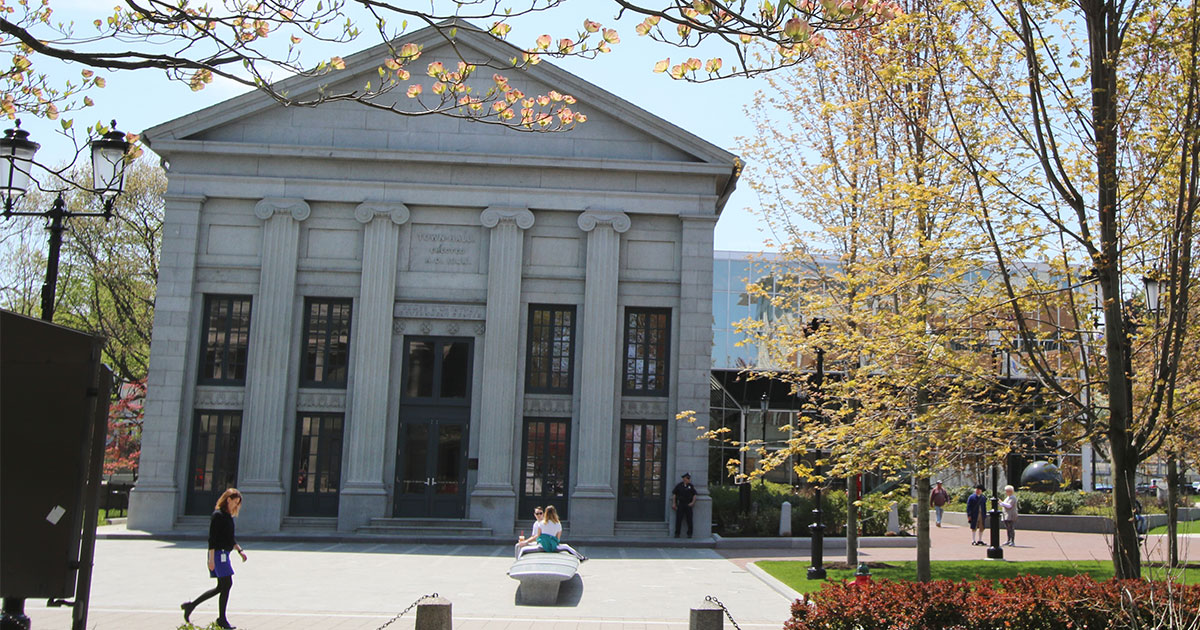Bringing the Entrepreneurial Mindset to the Halls of Government

Some people might raise an eyebrow if they hear the words “government” and “innovation” being used in the same sentence.
“Government actually is a fascinating place for innovation,” says D.R. Widder MBA’99, the vice president of innovation at Babson College.
Through a new program designed by Widder, Babson is bringing innovation and the entrepreneurial mindset to the halls of government. Called the Babson Accelerator for Growth, Innovation, and Entrepreneurial Leadership, or B-AGILE for short, the program helps instill a culture defined by creativity, collaboration, and the ability to not only dream up new ways of doing things, but also the know-how required for making them reality.
“The grand plan is cultural transformation over time,” says Widder. Given how much government touches so many aspects of our lives, that transformation can have a profound impact on communities and the efficiency and effectiveness of services offered to citizens, from public works to education to public safety.
A Liberating Program
Government workers seeking to be entrepreneurial may face many obstacles. “Governments oftentimes get bogged down by bureaucratic rules and regulations at the expense of good ideas,” says Kevin Sullivan, Babson’s vice president of strategic corporate relations and engagement. “Government employees are many times afraid to take risks due to bad headlines or public rebuke. They don’t get incentive bonuses, so it is easier to go along to get along.”
Sullivan once served as the mayor of Lawrence, a city in northeastern Massachusetts, so he has seen those challenges firsthand. He also has seen how dedicated government employees are to their jobs and how driven they are to serve their communities. “Public employees really work hard and want to do a great job,” says Sullivan. “B-AGILE gives them the platform to try new ideas.”
B-AGILE may be a new program, but it already has attracted much interest. Babson offered a mini-version of B-AGILE to city leaders in Miami earlier this year, and Quincy, a city located south of Boston, just completed the program. Boston itself will take part in B-AGILE this fall. While it was originally intended for governments, Widder reports that companies also are beginning to enroll in it.
“Public employees really work hard and want to do a great job. B-AGILE gives them the platform to try new ideas.”
Kevin Sullivan, Babson’s vice president of strategic corporate relations and engagement
In Quincy, 20 key city managers and leaders participated in B-AGILE, which ran for 10 online sessions over the course of five weeks. Eight Babson faculty members covered a variety of topics, including brainstorming, leadership, and the process for gaining support for an idea and advancing it through an organization. They also discussed how to foster a positive environment that encourages creativity and novel thinking, something that might not be common in the entrenched ways of city hall.
“You’re talking about problems and how to solve them, and doing so while no one is shooting down each other’s ideas,” says Widder. “This kind of innovative thinking is liberating.”
A Transformative Network
Participants in Quincy took away a number of key lessons from B-AGILE. Dagny Ashley, the city’s director of tourism, learned the importance of asking pointed questions to understand the issues that stakeholders are facing. Making change can be a slog, so Sue Kindregan, license board administrator, took to heart the approach of thinking big but making changes incrementally.
To learn more about B-AGILE, contact corporatebabson@babson.edu.
With resources limited, Katie Livingstone, a software trainer, liked the emphasis on finding opportunities internally, those solutions that “could be right in front of you,” to address problems. “The B-AGILE program was incredibly beneficial by showing me how to change my way of thinking in multiple aspects of my job,” Livingstone says.
The importance of relationship building also resonated with participants. When employees from different departments come together, they can form a network of entrepreneurial-minded thinkers and doers. “B-AGILE brings problem solvers together so it is not just one employee working to add value, it is several employees representing a cross section of the whole municipal government,” says Sullivan.
Such a network can be transformative. “They have the power to change things for the better,” says Widder. “It’s truly inspiring.”
Posted in Entrepreneurial Leadership




